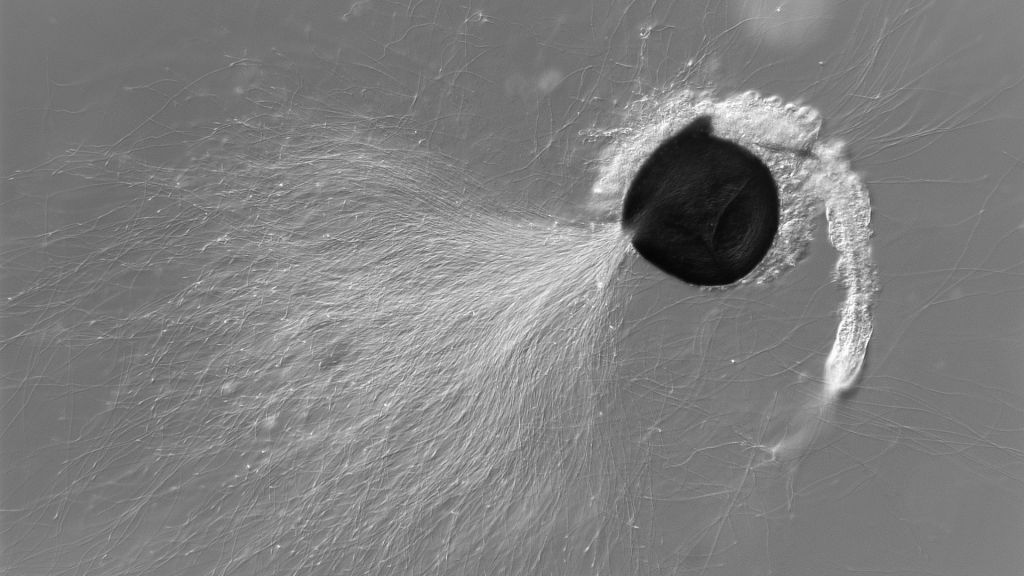WP1-Identification of Molecular Targets
WP1 - Identification of Molecular Targets
Lead: Spanish National Research Council, CSIC (Spain)

Lead: Spanish National Research Council, CSIC (Spain)
Dr. Marta Andrés, Principal Investigator. Send Email


Dr. Marta Andrés, Principal Investigator. Send Email
 This work package aims to uncover the molecular and neurological mechanisms underlying mosquito mating behaviour in the malaria mosquito Anopheles gambiae. Identifying these pathways will allow to develop novel tools to target them pharmacologically or genetically. A special focus will be dedicated to genes underlying mosquito audition, as mating partners are acoustically recognized through their flight tones. Researchers will conduct transcriptomic analysis to identify genes potentially involved in mosquito hearing and other mechanisms related to mosquito mating. Candidate genes will be knocked-out using CRISPR/Cas9 genome-editing technologies. Potential phenotypes will be analysed using a combination of physiological and behavioural tools.
This work package aims to uncover the molecular and neurological mechanisms underlying mosquito mating behaviour in the malaria mosquito Anopheles gambiae. Identifying these pathways will allow to develop novel tools to target them pharmacologically or genetically. A special focus will be dedicated to genes underlying mosquito audition, as mating partners are acoustically recognized through their flight tones. Researchers will conduct transcriptomic analysis to identify genes potentially involved in mosquito hearing and other mechanisms related to mosquito mating. Candidate genes will be knocked-out using CRISPR/Cas9 genome-editing technologies. Potential phenotypes will be analysed using a combination of physiological and behavioural tools.
 This work package aims to uncover the molecular and neurological mechanisms underlying mosquito mating behaviour in the malaria mosquito Anopheles gambiae. Identifying these pathways will allow to develop novel tools to target them pharmacologically or genetically. A special focus will be dedicated to genes underlying mosquito audition, as mating partners are acoustically recognized through their flight tones. Researchers will conduct transcriptomic analysis to identify genes potentially involved in mosquito hearing and other mechanisms related to mosquito mating. Candidate genes will be knocked-out using CRISPR/Cas9 genome-editing technologies. Potential phenotypes will be analysed using a combination of physiological and behavioural tools.
This work package aims to uncover the molecular and neurological mechanisms underlying mosquito mating behaviour in the malaria mosquito Anopheles gambiae. Identifying these pathways will allow to develop novel tools to target them pharmacologically or genetically. A special focus will be dedicated to genes underlying mosquito audition, as mating partners are acoustically recognized through their flight tones. Researchers will conduct transcriptomic analysis to identify genes potentially involved in mosquito hearing and other mechanisms related to mosquito mating. Candidate genes will be knocked-out using CRISPR/Cas9 genome-editing technologies. Potential phenotypes will be analysed using a combination of physiological and behavioural tools.

Credit: Judy Bagi

Credit: Judy Bagi
This work package aims to uncover the molecular and neurological mechanisms underlying mosquito mating behaviour in the malaria mosquito Anopheles gambiae. Identifying these pathways will allow to develop novel tools to target them pharmacologically or genetically. A special focus will be dedicated to genes underlying mosquito audition, as mating partners are acoustically recognized through their flight tones. Researchers will conduct transcriptomic analysis to identify genes potentially involved in mosquito hearing and other mechanisms related to mosquito mating. Candidate genes will be knocked-out using CRISPR/Cas9 genome-editing technologies. Potential phenotypes will be analysed using a combination of physiological and behavioural tools.

Dr. Marta Andrés, Principal Investigator. Send Email
Tasks
- Bioinformatic analysis.
- Gene knockout generation.
- Phenotypic characterization using behavioural assays
Expected output
A validated portfolio of molecular targets that will serve as a scientific basis for validation in other mosquito species, downstream field testing (WP2) and control tool development (WP3).
